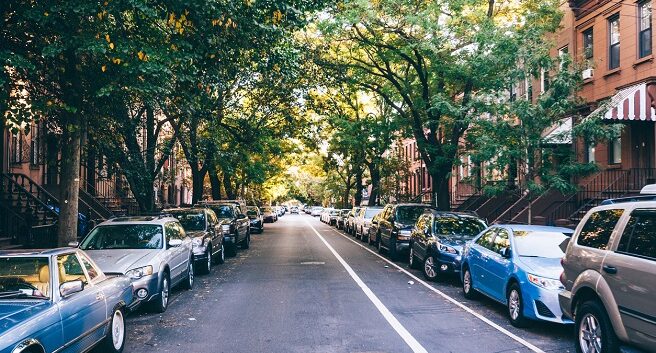Deciding to buy your first home is a complex journey fraught with compromises. Figuring out the “must haves” versus the “nice to haves” is a daunting task. One decision that homebuyers looking in older neighborhoods often grapple with is whether to look at homes without a garage. Not all houses have garages, especially older ones! And many homes sell for top dollar even without a garage. However, attached garages are pretty much the norm in suburbia.
Flashback to the 1920s, as automobiles became accessible to the burgeoning middle class, the detached garage – a signifier of modern convenience – started to dot American neighborhoods. It was not until a decade later that the first attached garages began to grace architectural blueprints, marking a significant shift in residential design.
Yet, contrary to popular belief, not all homes have garages. A National Association of Home Builders (NAHB) report found that while 72% of prospective homebuyers express a preference for a garage, specifically a two-car garage, the actual number of homes with garages is less definitive.
According to U.S. Census Bureau data, the proliferation of garages has been a gradual process. In 2022, it was found that 98% of new construction homes featured at least a one-car garage. However, in 1991, only 87% did, and none had three-car garages. This data paints a clear picture of a slow but steady rise in garages in the American home.
But will you have trouble reselling a home without a garage? The answer is complex and depends on several factors, including the type and age of the house. There are lots of older bungalows and mid-century moderns in urban areas that only offer carports or street parking. These homes sell very quickly in high-demand neighborhoods for top dollar.
Modern zoning forces builders to build homes with a garage for the sake of having a garage. This doesn’t consider buyer preferences. People want walkability, proximity to great restaurants and shopping, and parking is often secondary or an afterthought.
John Hunt, principal and chief analyst of MarketNsight, advises municipalities to consider how restrictive zoning is affecting housing choices and affordability. He advocates for innovative mixed-density housing types, such as duplexes, triplexes, quads, mansion apartments or eightplexes, which provide affordable options for those desiring proximity to their workplace. These “missing middle” housing options could be a boon for those unable to afford traditional single-family homes with garages.
Building a house with a garage can be a significant expense compared to a carport or no garage at all. Homes without garages are often more affordable and can fit on smaller lots, making them an attractive option for first-time buyers.
As housing preferences evolve and sustainable modes of transportation gain traction, the necessity of a garage may wane. Ultimately, the decision depends on the homebuyer’s preferences and “must-haves.”
Don’t shy away from falling in love with a house just because it lacks a garage. Instead, engage with a local real estate agent who can provide market insights and guide you through your purchase. After all, a home is more than its garage.
